19+ SAMPLE Wedding Event Contract
-
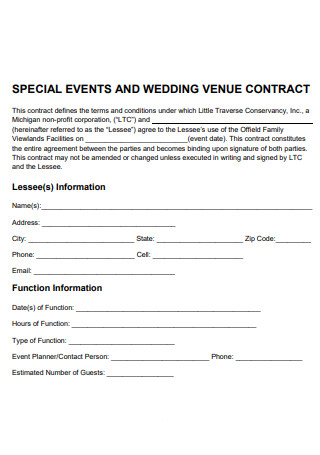
Wedding Event Venue Contract
download now -
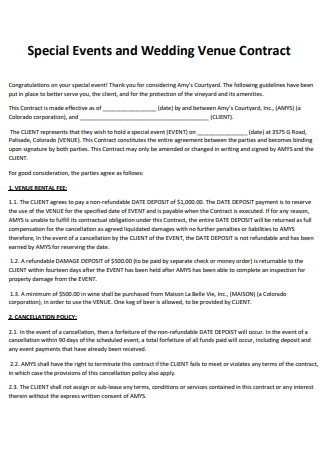
Wedding Special Event Contract
download now -
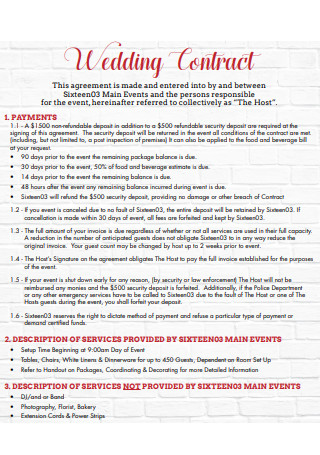
Wedding Main Event Contract
download now -
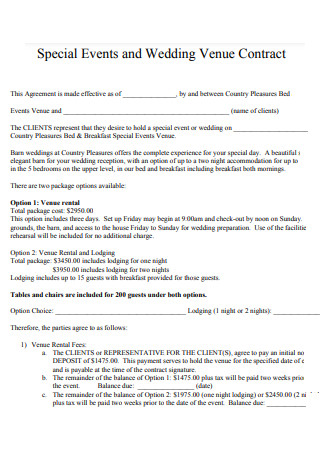
Special Events and Wedding Venue Contract
download now -
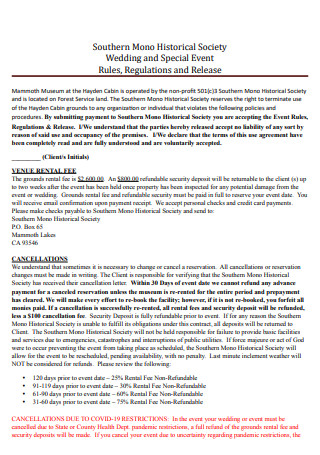
Free Wedding Event Contract
download now -
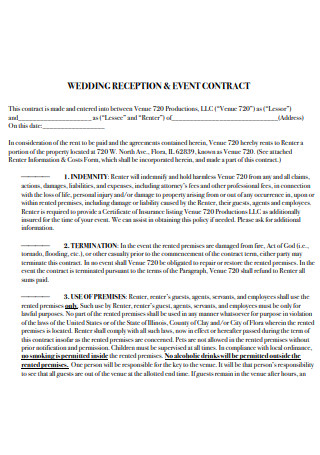
Wedding Reception Event Contract
download now -
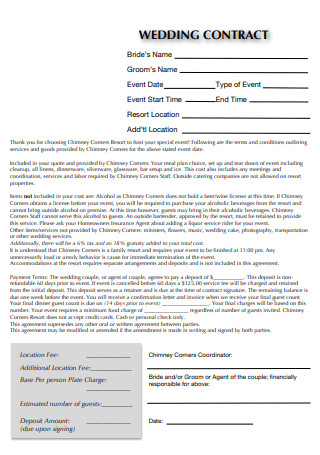
Simple Wedding Event Contract
download now -
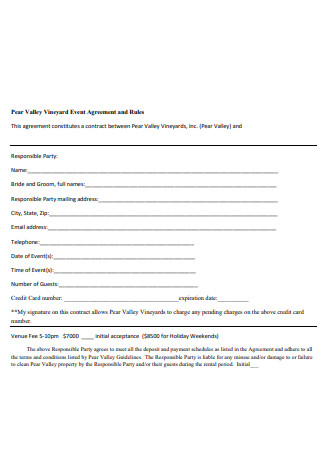
Basic Wedding Event Contract
download now -
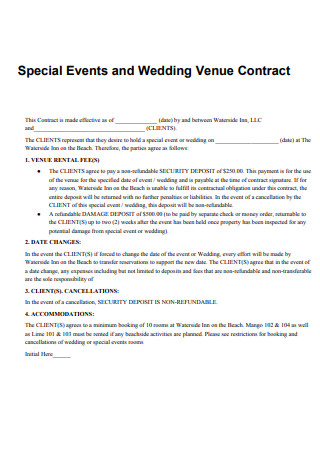
Wedding Event Special Venue Contract
download now -
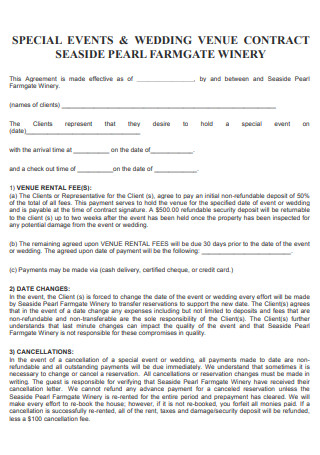
Standard Wedding Event Contract
download now -
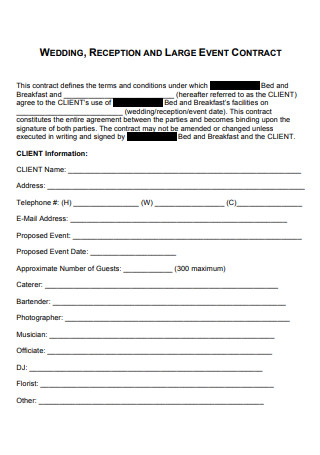
Wedding Large Event Contract
download now -
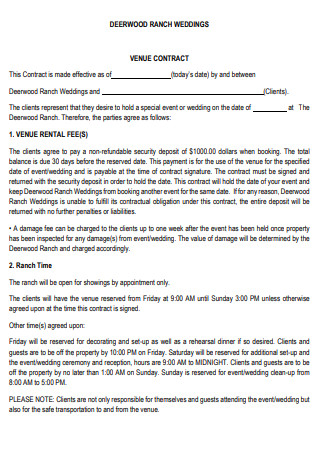
Wedding Event Planner Contract
download now -
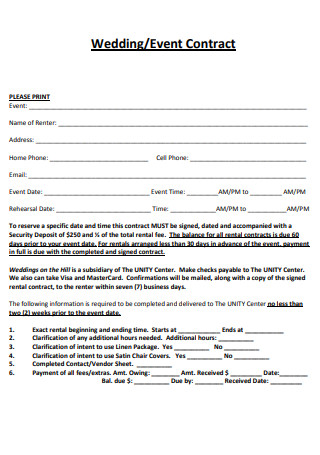
Wedding Event Contract Example
download now -
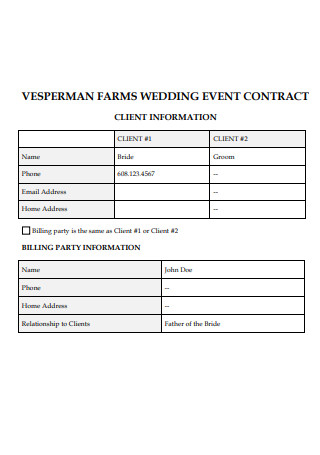
Wedding Event Management Contract
download now -
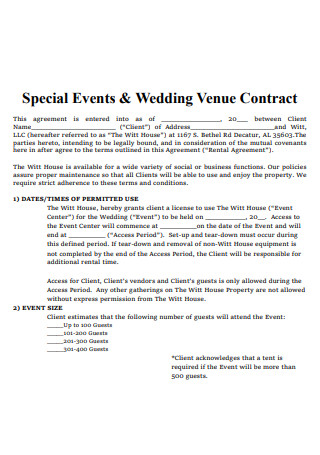
Formal Wedding Event Contract
download now -
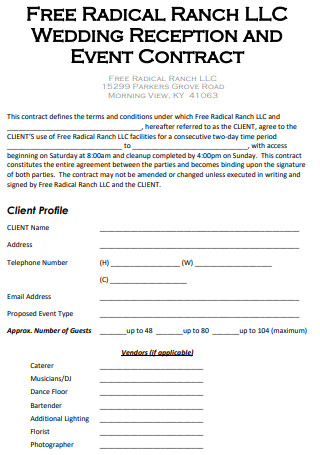
Wedding Reception and Event Contract
download now -
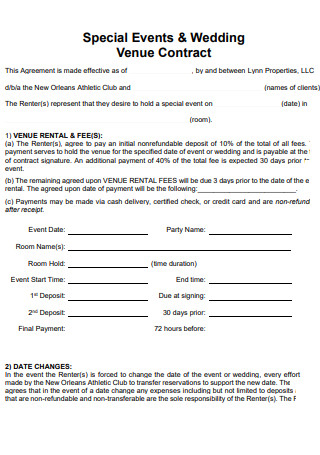
Wedding Event Contract in PDF
download now -
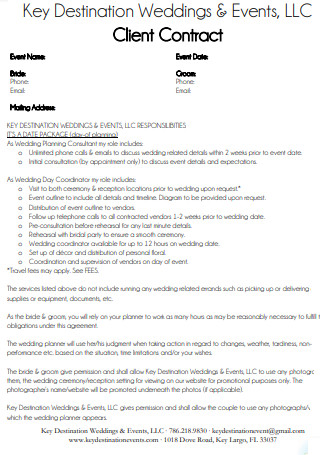
Destination Wedding Event Contract
download now -
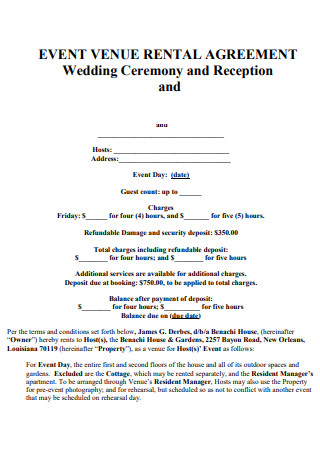
Wedding Ceremony Event Contract
download now -
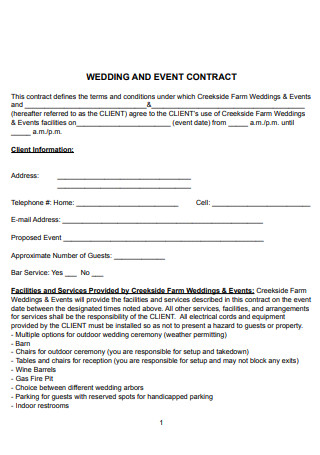
Wedding Event Organizer Contract
download now
FREE Wedding Event Contract s to Download
19+ SAMPLE Wedding Event Contract
What Is a Wedding Event Contract?
Essential Elements in Wedding Event Planning
How to Create a Wedding Event Contract
FAQs
What are the fees and charges usually found in a Wedding Event Contract?
What is a Photo Release or Image Release Clause in a Wedding Event Contract?
What are some examples of a force majeure event that can cancel a Wedding Event Contract?
What Is a Wedding Event Contract?
First, let’s define what a contract is. LegalMatch defines a contract, “as an agreement between two private parties that creates mutual legal obligations. A contract can be either oral or written.” A wedding event contract is a legal-binding agreement between the event planner and the client, usually in the form of a written document, which specifies the details and terms and conditions of the preparation, conduct, or performance of a wedding event. The main objective of having a wedding event contract is the protection of both parties involved in the wedding planning event, both the event planner and the client, to ensure that the details and what was agreed upon was met, and to also avoid unnecessary miscommunication during the process. Some of the services that are included as part of a wedding event planner’s job description are bookings of the wedding ceremony and the reception venue; budget preparation; decorating of the event; planning photoshoots; contracting wedding service providers such as florists, photographers, caterers, et cetera; and supervising the wedding day program.
Stevie Ray Entertainment in an article said that the “wedding industry generates in the United States over 60 billion dollars a year in wedding and ceremony related expenses (this figure does not include the honeymoon, which is estimated to be between 4 and 8 billion dollars a year).” With that figure in mind, the need for professional wedding event planners also is set to increase. Eons ago, the wedding event planning was usually handled by the mother of the bride with, of course, the occasional nudging and badgering from the future mother-in-law. Now, with all the pressure of the modern world, even mothers couldn’t keep up with today’s society’s expectation of what a wedding should be. From the latest fashion wedding gown, latest trend in hair and makeup, food service, photo ops, list of bridesmaids and guests, and all others, not unless the parent is an experienced event organizer, it’s all too much for a mother to deal alone. Hence, the need for a wedding event planner.
Essential Elements in Wedding Event Planning
Where would a future bride be without an event planner on her wedding day? Probably feeling harassed and looking frazzled. Wedding event planning can take a toll on anyone who hasn’t got the right expertise for planning such an important occasion. A wedding to-do checklist usually works as the main tool in making sure everything that is needed is available and ready. But what is inside that checklist? What are the essential elements to planning a wedding?
How to Create a Wedding Event Contract
Now that you have the gist on what goes on in a wedding event planning, it’s time to move on to creating that binding agreement that pulls all of this together: the wedding event contract. The wedding event contract should be drafted and signed upon at the first instance before the actual preparation for the wedding takes place. Preferably, it should be in a written form, rather than just orally agreed upon, so that there will be proper documentation on what kind of agreement took place. Also, the document could serve as a guide for a wedding event planner on what the to do’s and the not to do’s are. Here are some of the key steps in making a wedding event contract:
Step 1: List Down the Parties Involved
Not everyone is involved, or as a matter of fact, held liable in a contract. Only those names that are written down or mentioned in the contract are expected to perform whatever obligation was set. So, the first step to creating a wedding event contract is to list down all the parties privy to the wedding event agreement. Usually coined as the privity of contract, this important part of the contract identifies the names of individuals or groups as the only ones binded to perform the obligations identified in the contract. Therefore, in case of non-performance, those that can be held accountable or liable are only those names that are mentioned. In the case of a wedding event contract, the names usually mentioned are the event planner, and/or the agency of the event planner, and the name of the contracting party, can be the bride’s name or both the bride and the groom’s name.
Step 2: Identify the Services to be Provided by the Event Planner
Both parties should get into talks and come into agreement on what kinds of services they will be having. Once they have agreed upon it, it should then be listed down in the contract. Event planning services could include booking venues and catering services, contracting wedding service providers, planning the program for the wedding reception, equipment to be used, organizing the guest list, transportation and other logistics, honeymoon plans, et cetera. It’s best that the bride and groom should already have a list in hand and, if possible, a wedding theme. If not, the event planner could provide a list of services they have provided from past events. It is important that everything should be clearly listed down, and that the client, the bride and groom, understands every detail to avoid ambiguity.
Step 3: Other Wedding Details
This part can be an additional item to the contract. Just briefly, give other details of the wedding such as the venues, if this has already been decided upon, including the date and time. This could be in an itemized format. So the ceremony venue, reception venue, the date and the time of the wedding. List down all other specific details that both parties should be aware of with regards to the wedding event.
Step 4: Payment Terms
Outline all the payment details in the contract, starting off how much is the event planner’s fee, or the event planning agency’s charge. Indicate if there was an advance or initial payment that was made and when is the balance due. Also indicate how the payment will be made, if there was any agreement. It could be through installment basis, one-time payment, or after the event payment. The overall total charge should cover the cost of the whole event, the event planner’s fee or agency’s fee, and any other related taxes and charges. Penalties or interest fees can also be included in the contract in case of overdue payment.
Step 5: Termination, Cancellation, and Indemnification Clause
These three are all essential parts of any kind of contract since they safeguard the interests of all parties involved. Termination clause, termination of contract, known sometimes as force majeure provision, protects the event planner from legal actions if the event planner was unable to deliver the obligations due to circumstances beyond their control, such as extreme weather conditions. Cancellation clause, contract cancellation, ensures the payment if the client backs out. An example would be the nonrefundable statement against any deposits in case of cancellation. Indemnification clause is the event planner’s protection against any damages or losses that were made due to the client’s negligence.
FAQs
What are the fees and charges usually found in a Wedding Event Contract?
The fees and the charges are usually the event planner’s talent fee, or the event planning agency’s fee, and the overall expense of the whole wedding event. Some costs and expenses are the payment for the venues, payment for the wedding service providers, food or caterers, beauticians, transportation, et cetera.
What is a Photo Release or Image Release Clause in a Wedding Event Contract?
This clause or provision is not necessarily an important part of a wedding event contract, but can be included if agreed upon by the parties. This clause gives the event planner the right to use the photographs taken during the wedding event to promote their services. It provides more exposure to the event planner as a wedding organizer for the purpose of attracting new clients.
What are some examples of a force majeure event that can cancel a Wedding Event Contract?
The word force majeure is a French word that means “greater force”. Some examples of force majeure events are flood, hurricane, earthquake, typhoon, riots, war, extreme lightning conditions, lockdowns and lockouts, acts of state or government, et cetera, or any extreme conditions making it impossible for the event planner to perform their obligations.
Planning a wedding event is an important task since the overall outcome affects the most significant occasion in a woman’s life, and that is her wedding day. The satisfaction of the families from both sides should be met, but more importantly is the satisfaction of the bride herself. Thus, the wedding event planner must up their game, and their expertise should be brought to the table when planning a wedding. Needless to say, it’s no mean feat to be a wedding event planner.
That is why to ensure the smooth flow of the wedding event, to make sure that what was agreed upon was performed, and to protect the interests of all parties involved, a wedding event contract is a must in this situation. Creating a wedding event contract shouldn’t be difficult. Download one of our wedding event contract templates now, and see how we make contract-making easy for you as a wedding event planner!
